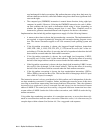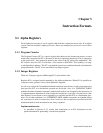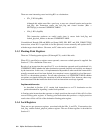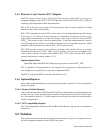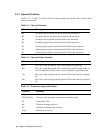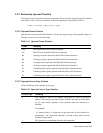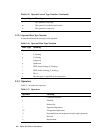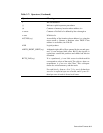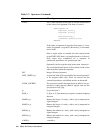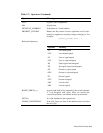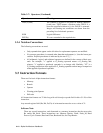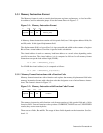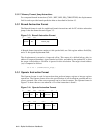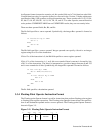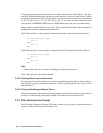
3–8 Alpha Architecture Handbook
CASE The CASE construct selects one of several actions based
on the value of its argument. The form of a case is:
CASE argument OF
argvalue1: action_1
argvalue2: action_2
...
argvaluen:action_n
[otherwise: default_action]
ENDCASE
If the value of argument is argvalue1 then action_1 is exe-
cuted; if argument = argvalue2, then action_2 is executed,
and so forth.
Once a single action is executed, the code stream breaks
to the ENDCASE (there is an implicit break as in Pascal).
Each action may nonetheless be a sequence of
pseudocode operations, one operation per line.
Optionally, the last argvalue may be the atom ‘otherwise’.
The associated default action will be taken if none of the
other argvalues match the argument.
DIV Integer division (truncates)
LEFT_SHIFT(x,y) Logical left shift of first operand by the second operand.Y
is an unsigned shift value. Zeros are moved into the
vacated bit positions, and shifted out bits are discarded.
LOAD_LOCKED The processor records the target physical address in a per-
processor locked_physical_address register and sets the
per-processor lock_flag.
lg Log to the base 2.
MAP_x F_float or S_float memory-to-register exponent mapping
function.
MAXS(x,y) Returns the larger of x and y, with x and y interpreted as
signed integers.
MAXU(x,y) Returns the larger of x and y, with x and y interpreted as
unsigned integers.
MINS(x,y) Returns the smaller of x and y, with x and y interpreted as
signed integers.
MINU(x,y) Returns the smaller of x and y, with x and y interpreted as
unsigned integers.
x MOD y x modulo y
Table 3–7: Operators (Continued)
Operator Meaning



